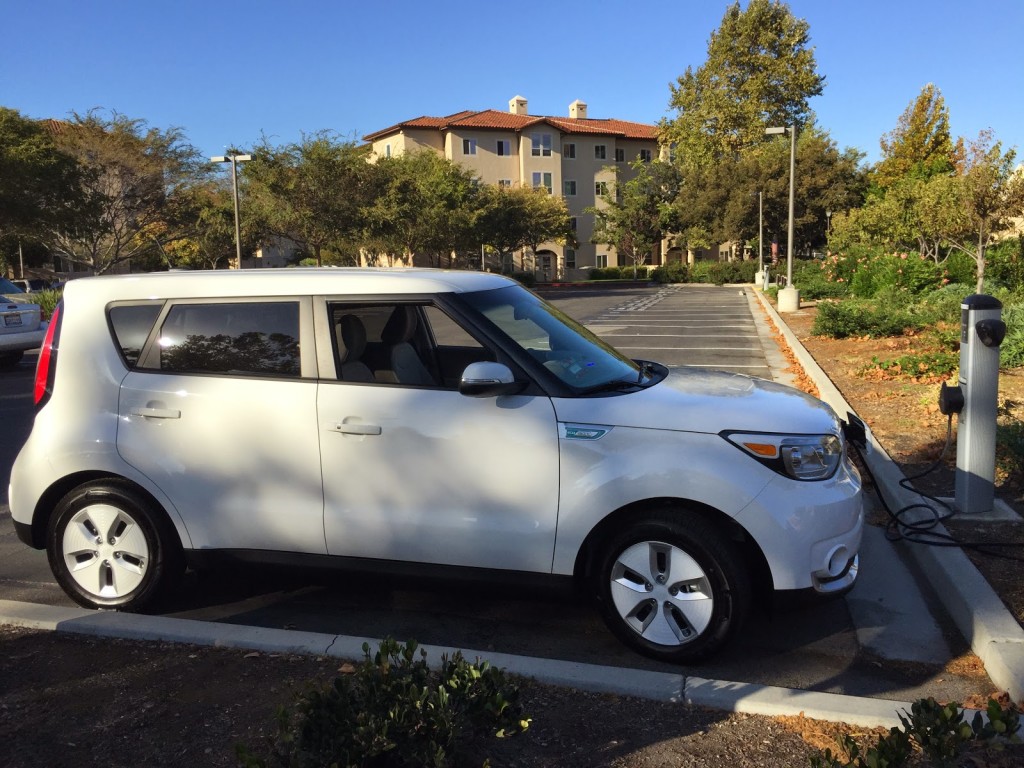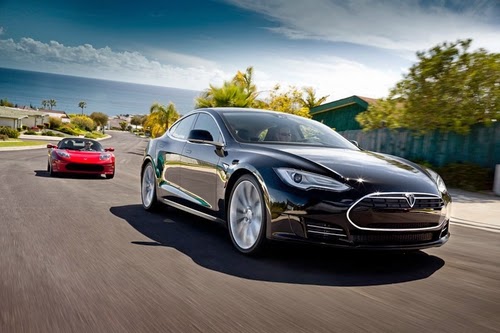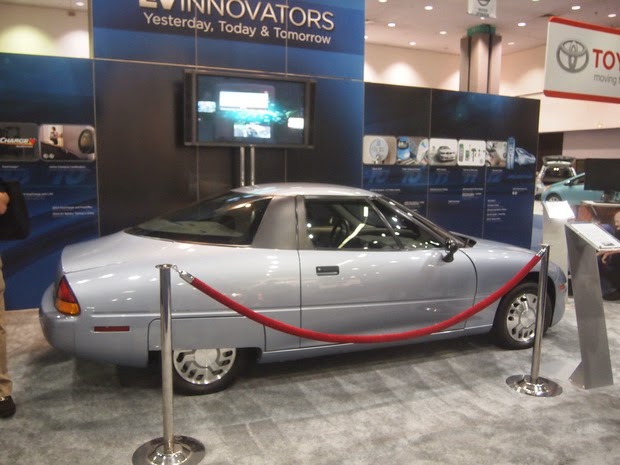 I like to outright own my cars, driving them for many years, preferably not driving very much, all to make the best return-on-investment on each car. But I, and many electric car buyers, say that at this stage of the electric vehicle market it’s better to lease, rather than buy. How would I, a true blue living-beneath-your-means guy, square these two opposing car ownership strategies?
I like to outright own my cars, driving them for many years, preferably not driving very much, all to make the best return-on-investment on each car. But I, and many electric car buyers, say that at this stage of the electric vehicle market it’s better to lease, rather than buy. How would I, a true blue living-beneath-your-means guy, square these two opposing car ownership strategies?
I just leased a Kia Soul EV. This is my first time ever leasing any kind of car. I have a few thoughts to share.
Fifteen years or so ago I pondered getting a GM EV1. That deal would have cost $15,000 or so for a three year lease, and I would have owned NOTHING at the end because the EV1 was ONLY offered through a lease. Nobody was allowed to buy the EV1. As we saw in Who Killed The Electric Car, some EV1 lessors were so hooked on the car that they were desperate enough to keep them beyond the lease period that they offered to pay large sums to GM. Some staged a protest/blockade of GM’s office in Southern California, when it was learned GM was going to crush the EV1’s which had been returned from lease. Some even got arrested, and then went on to form Plug-In America.
Me? I couldn’t get past that idea of owning nothing after spending $15,000 on a 3 year EV1 lease. I didn’t even try to get one.
Fortunately most car leasing is not structured that way. In typical leases, you’re paying for the difference between the MSRP and the future value predicted by the manufacturer. The three years (or whatever) of lease payments add up to an amount that’s supposed to cover that difference in value. The manufacturers prediction of the car’s remaining value may or may not be accurate. Typically, at the end of the lease, the lessor can buy the car at its residual value.
Whether this makes financial sense depends on the actual market value of that car brand/model at that time. If the value plummeted, the lessor is better off walking away from the lease at its end. If the car held value (is worth more than the manufacturers prediction), then it’s better to buy the car when the finishes.
This is my first time, so I might have gotten something incorrect. If so, let me know in the comments area below.
What might affect the future value of an electric car?
 Maybe a given car will trigger an extra level of desirability, perhaps as a collectible? The Tesla Roadster comes to mind, between its limited production and the mystique surrounding it. The remaining Roadsters seem to be appreciating in value, as collectible’s. The same might happen for the Toyota RAV4 EV (Gen2), because of limited production and how good a car it is and its Tesla-manufactured drive train.
Maybe a given car will trigger an extra level of desirability, perhaps as a collectible? The Tesla Roadster comes to mind, between its limited production and the mystique surrounding it. The remaining Roadsters seem to be appreciating in value, as collectible’s. The same might happen for the Toyota RAV4 EV (Gen2), because of limited production and how good a car it is and its Tesla-manufactured drive train.
On the other hand technology advancements, while exciting, and while making electric cars even more exciting than they are now, can render older electric cars worthless.
A breakthrough in charging time or total driving range or automated driving capability or performance (speed, acceleration) could reduce the desirability of older electric cars.
An example of this just hit the Tesla Model S market.
In October 2014, Tesla Motors announced two major new features: 1) sensors and software adding strong driver assist features, and 2) a new dual motor drive train for the Model S.
Both are very exciting advancements for the Model S product line. Both, though, made the prior Model S’s much less attractive in comparison. There’s talk that some existing Model S owners want to trade in their old cars to get the new technology. If so, there could be a glut of used Model S’s entering the market, and lacking the driver assist features they’ll be less desirable that could make them worth less on the market.
When Nissan added 6.6 kilowatt charging to the 2013 Nissan Leaf, or switched to a heat tolerant battery pack in the 2015 Nissan Leaf, the older Leaf’s became less attractive.
In 2017ish it appears 2-3 or more affordable 200 mile range electric cars will be on the market. Will older electric cars with a piddly (by comparison) 80 mile range be very attractive? Probably not.
In other words, leasing an electric car protects against technology advances that render older electric cars worthless.
The same effect occurs in other markets. I’ve bought several digital cameras for $300 or more apiece only to see them become worthless a couple years later as they’re superseded by newer superior cameras. The same is true for cell phones, computers and all kinds of other electric gizmos. I just sold my trusty iPhone 4 because the iPhone 6 was much better, and because Apple dropped software support on the iPhone 4.
- Highway design could decrease death and injury risk, if “we” chose smarter designs - March 28, 2015
- GM really did trademark “range anxiety”, only later to abandon that mark - March 25, 2015
- US Government releases new regulations on hydraulic fracturing, that some call “toothless” - March 20, 2015
- Tesla Motors magic pill to solve range anxiety doesn’t quite instill range confidence - March 19, 2015
- Update on Galena IL oil train – 21 cars involved, which were the supposedly safer CP1232 design - March 7, 2015
- Another oil bomb train – why are they shipping crude oil by train? – Symptoms of fossil fuel addiction - March 6, 2015
- Chevron relinquishes fracking in Romania, as part of broader pull-out from Eastern European fracking operations - February 22, 2015
- Answer anti- electric car articles with truth and pride – truth outshines all distortions - February 19, 2015
- Apple taking big risk on developing a car? Please, Apple, don’t go there! - February 16, 2015
- Toyota, Nissan, Honda working on Japanese fuel cell infrastructure for Japanese government - February 12, 2015
















